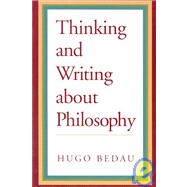| To the Instructor: Helping Your Students Improve Their Writing | iii | ||||
| To the Student: Why Improving Your Writing Matters---to You | vi | ||||
|
1 | (3) | |||
|
1 | (1) | |||
|
2 | (2) | |||
|
4 | (43) | |||
|
4 | (1) | |||
|
4 | (29) | |||
|
5 | (1) | |||
|
6 | (1) | |||
|
6 | (3) | |||
|
|||||
|
|||||
| 9 | (2) | ||||
|
11 | (1) | |||
|
12 | (1) | |||
|
13 | (6) | |||
|
19 | (2) | |||
|
|||||
|
21 | (2) | |||
|
23 | (1) | |||
|
23 | (3) | |||
|
26 | (3) | |||
|
29 | (4) | |||
|
33 | (14) | |||
|
34 | (1) | |||
|
35 | (1) | |||
|
36 | (8) | |||
|
44 | (3) | |||
|
|||||
|
47 | (20) | |||
|
48 | (1) | |||
|
49 | (1) | |||
|
50 | (4) | |||
|
51 | (2) | |||
|
53 | (1) | |||
|
54 | (5) | |||
|
55 | (1) | |||
|
55 | (2) | |||
|
57 | (2) | |||
|
|||||
|
59 | (8) | |||
|
60 | (2) | |||
|
62 | (1) | |||
|
63 | (1) | |||
|
63 | (4) | |||
|
|||||
|
67 | (32) | |||
|
67 | (1) | |||
|
68 | (31) | |||
|
71 | (2) | |||
|
73 | (3) | |||
|
76 | (2) | |||
|
|||||
|
78 | (1) | |||
|
79 | (2) | |||
|
81 | (12) | |||
|
93 | (6) | |||
|
|||||
|
99 | (38) | |||
|
99 | (11) | |||
|
99 | (1) | |||
|
100 | (2) | |||
|
102 | (1) | |||
|
102 | (1) | |||
|
102 | (1) | |||
|
103 | (1) | |||
|
103 | (1) | |||
|
104 | (3) | |||
|
107 | (1) | |||
|
108 | (2) | |||
|
110 | (27) | |||
|
110 | (2) | |||
|
112 | (1) | |||
|
112 | (2) | |||
|
114 | (2) | |||
|
116 | (3) | |||
|
119 | (1) | |||
|
119 | (3) | |||
|
122 | (2) | |||
|
124 | (1) | |||
|
124 | (1) | |||
|
125 | (1) | |||
|
126 | (4) | |||
|
|||||
|
130 | (2) | |||
|
132 | (3) | |||
|
135 | (2) | |||
|
137 | (15) | |||
|
137 | (4) | |||
|
137 | (1) | |||
|
137 | (1) | |||
|
138 | (1) | |||
|
139 | (1) | |||
|
139 | (1) | |||
|
139 | (1) | |||
|
140 | (1) | |||
|
140 | (1) | |||
|
141 | (3) | |||
|
144 | (8) | |||
|
145 | (1) | |||
|
146 | (1) | |||
|
146 | (2) | |||
|
148 | (2) | |||
|
150 | (1) | |||
|
151 | (1) | |||
|
|||||
|
152 | (9) | |||
|
153 | (1) | |||
|
154 | (4) | |||
|
158 | (3) | |||
| Index | 161 |








